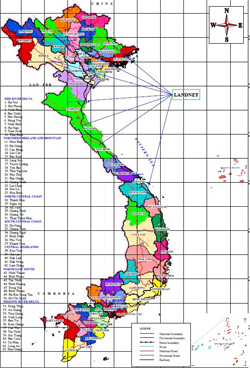ADVOCACY
Workshop on customary law-based and community-based forest and forestland allocation in Phin Ngan commune, Lao Cai province
- Since the 2011, Livelihood Sovereinty Alliance (LISO) with the leading role of Social Policy Ecology Research Institute (SPERI) in coordination with Lao Cai Forestry Department, has succesffully carried out community-based and customary law-based forest and forestland allocation for several Hmong ethnic minority villages in Lung Sui commune, Simacai district, Lao Cai province.

Sai Duan village, Phin Ngan commune, Bat Xat district, Lao Cai province
This forest and forestland allocation methodology has been built up into a manual by the Lao Cai Forestry Department to guide the provincial locatlities in implementation as well as to share it with other LISO’s project provinces such as Lang Son, Nghe An, Ha Tinh, Quang Binh, Quang Nam and Kon Tum.
On July 20, 2014, an MOU between SPERI, Lao Cai Forestry Department and Bat Xat District People’s Committee (DPC) was signed to extend community-based and customary law-based forest and forestland allocation for community and households in Phin Ngan commune. It is scheduled to carry out the pilot allocation in Sung Hoang and Sai Duan villages of Phin Ngan commune in the second half the 2014. The project aims to improve livelihood of local peoples through growing herbal medicinal plants under the allocated forest.
On August 8, 2014, Bat Xat DPC in coodination with Lao Cai Forestry Department and SPERI organised a workshop on Customary-law based and Community-based forest and forestland allocation in Phin Ngan commune.

Workshop on Customary-law based and Community-based forest and forestland allocation in Phin Ngan commune
There were 40 people participated in the workshop, who are representatives from Bat Xat DPC, functional agencies and branches, such as Agriculture and Rural Development, Natural Resources and Environment, Forest Protection, Land Use Certification, Phin Ngan Communal People’s Committees, Bat Xat Management Board of Forest Protection, Lao Cai Forestry Department, LISO and community leaders and prestigious people from 14 villages of Phin Ngan commune.
At the workshop, Mr. Nguyen Duc Ca, Deputy Chairman of Bat Xat DPC shared the current situtation of forest and forestland allocation and management in the district, and highlighted needs and importance of the implementation of a plot on community-based forest and forestland allocation in Phin Ngan. He also shared difficulties facing local communities caused by the previous land allocation program, such as overlapping, inaccuracy and inappropriate methodology due to limitation in technology, experience and capability of the officials, notably lack of local people participation.

Mr.Nguyen Duc Ca, Deputy Chairman of Bat Xat DPC
Mr. Chao A Phay, Phin Ngan Communal Party Secretary highly appreciated the forest and forestland allocation program for households and communtiy, which has not only helped the villagers be more confident in making investment on their allocation land but also enabled local authorities to better manage and regulate local socio-ecnomic development.
Representatives from Sung Hoang and Sai Duan villages also voiced their concerns over policies and practice relating to forestland rights allocation and forest benefit-sharing. Mr. Sao Duan Chan also recomended Government supporting policy specific for households living in forest but not belonging to the areas subject to the Payment of Forest Environment Service Program PES currently implemented. Though Sai Duan village is not located in the reservoir area, it, however, has played a very important role in preserving and regerenating the natural ecology, providing indirect support to the downstream villages to prevent landslides and floods. Therefore, Sai Duan village should well deserve to be supported.

Bat Xat forest protection official shared information at the workshop
Mr. Vu Hong Diep, Head of the Lao Cai Forestry Department said that one of the most concerns currently facing the province is how to help the local people to stabilize their livelihood while planning three types of forest and forestland allocation in harmony with the traditional practices of local commnities. Accordingly, methodology and pilots on community-based and customary law-based forest and forstland allocation facilicated by LISO would play an important and meaningful role in orientation and development of the Lao Cai forestry sector.
By LISO


























